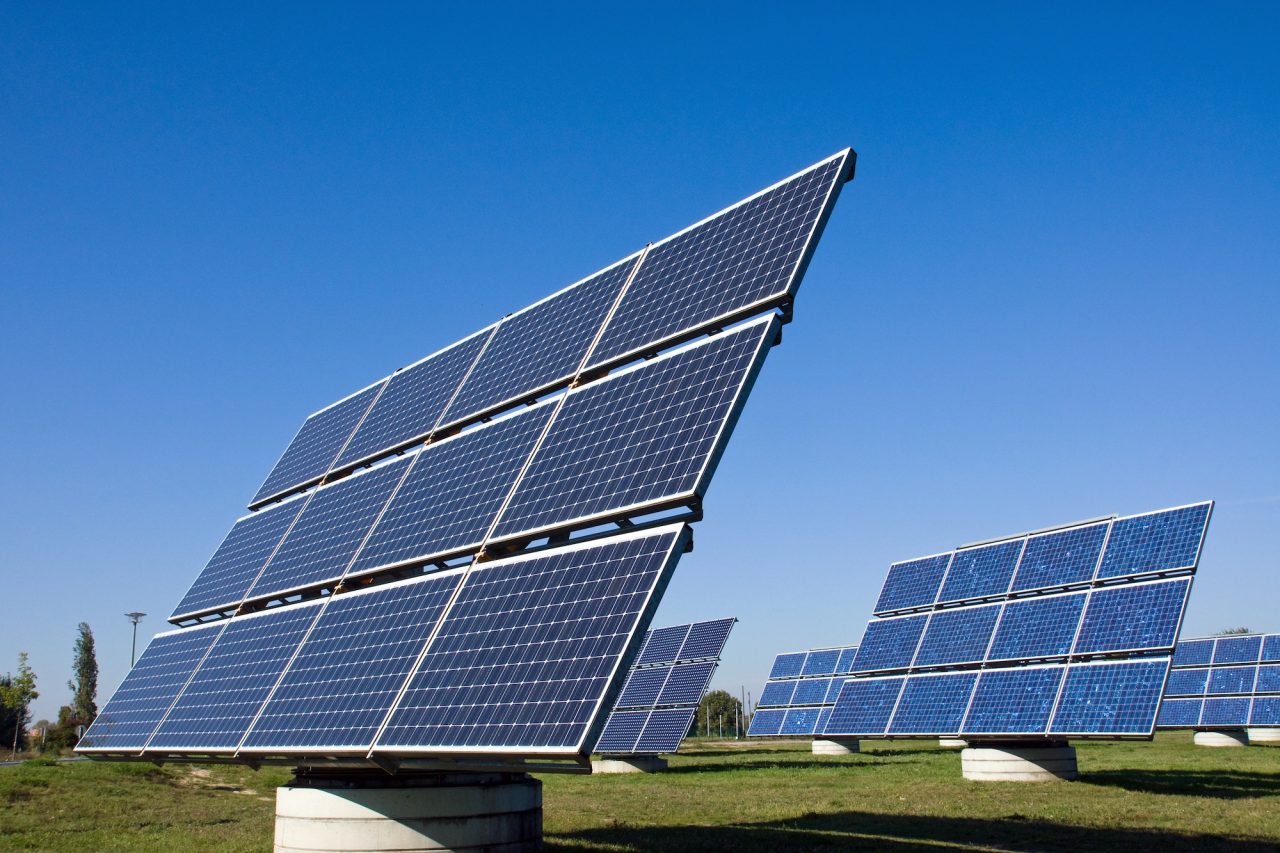IAIA25 Conference Proceedings
Impact Assessment in the Age of Artificial Intelligence
1-4 May 2025 | Bologna, Italy

IAIA25 proceedings are a recap of the May 2025 event. Visit the IAIA25 Proceedings page to get a glimpse of the sessions, presentations, and activities that made IAIA25 a success. There you will find:
Session Chair Reports: Read summaries of the concurrent sessions as submitted by the session chairs.
Presentations: View uploaded presentations; see the list below. (Note: Not all presenters choose to share their presentations.)
Final Program: Download the PDF final program to view the conference agenda and other final event details.
Papers: Presenters were invited to submit optional papers. The final (edited) papers are posted here.
Photos: See IAIA25 in action through these snapshots of the sessions, side events, and more.
Available Presentations
Indigenous Cultural Heritage … not just another worthy agenda item
Presenting author: Hirini Matunga
A Rights-Based Approach to IA: Indigenous Resilience and Resurgence Through Engaging in IA
Presenting author: Callie Laurelle Davies-flett
Us vs Machines: Impact Assessments More Efficient, Accurate & Substantive
Presenting author: Aceel Naseem I Radi
A Review of AI Techniques and Their Application to Stakeholder Engagement
Presenting author: Ridhee Gupta
Advanced SESA: Case Study of eDNA Application in the Solomon Islands
Presenting author: Francesco Ricciardi
AI 5.0 Platform for circular economy optimization in the ESIA process
Presenting author: Katia Gamberini
AI in the USA
Presenting author: Edward (Ted) Boling
AI in the USA; Technology’s Potential to Improve the National Environmental Policy Act (NEPA) Impact Assessment Process
Presenting author: Michael Smith
AI Tool for Enhancing the Process of Gap Analysis in ESIA and ESDD Studies
Presenting author: Simone Gurrieri
AI-Powered Environmental and Social Impact Assessment Platforms of the World Bank
Presenting author: Hak Joo Song
Are hydroelectric reservoir interesting for waterfowl : a case study
Presenting author: Stephane Lapointe
Artificial Intelligence implementation process into ESIA permitting system
Presenting author: Lawal Adegboyega
Assessment of the Carbon Sequestration Capacity of Mangrove Forest Plantation: Case study of Thailand
Presenting author: Wilailuk Niyommaneerat
Biocultural Social-Ecological Systems in IA with Indigenous Peoples
Presenting author: Renata Utsunomiya
Biodiversity IA in modified habitats:lesson learnt from artificial wetlands
Presenting author: Arianna Oggioni
Biodiversity Site Mapping – Risk Screening, alignment and mitigation
Presenting author: Elena Barcenilla Arranz
Boring into groundwater impact predictions of hardrock mines in Canada
Presenting author: Ben Collison
Bridging the Gap Between Social Performance Assessments, Plans and Implementation
Presenting author: Lynette Herbst
Can AI Update Baseline Data for Improved IA?
Presenting author: Marissa Murphy
Challenges of social data and database management in infrastructure projects
Presenting author: Fabien NATHAN
Charlie Wolf and Assessing Korea
Presenting author: Myungjin Kim
CIA-Local Action, Emerging Implications and What to do About it
Presenting author: Carla Conkin
Climate emergency and EIA: a framework for offshore oil & gas developments
Presenting author: Cristiano Vilardo
Contractor Social Management Lessons Learned
Presenting author: Kerry Colleen Fairley
Creating a Controlled Dataset of Environmental Assessment Texts for Generative AI Models and Multi-agent Systems: The Danish EA Hub
Presenting author: Lone Kørnøv
Critical modified habitat – a case study of giant otters in a reservoir
Presenting author: Fraser Wilkinson
Data, technology, and AI tools for enhanced accountability
Presenting author: Samer Araabi
Delivering Impact Assessment Commitments: A Digital Approach
Presenting author: Claire Davies
Development of a web portal for EIA with AI tools
Presenting author: Milan Dahal
Does jurisdictional siloing increase or undermine the efficiency and efficacy of next-generation IA in federalist states? A Canadian example
Presenting author: Anna Johnston
Drones and Artificial Intelligence (AI) Enhance Marine Megafauna Surveys in the Saudi Arabian Red Sea
Presenting author: William David Paterson
Effects Assessment, Risk Assessment and Artificial Intelligence
Presenting author: Alvaro Paredes
Embedding Nature Based Solutions in Brisbane 2032
Presenting author: Kimberley Swords
Enhancing Impact Assessment Through Digitization and GIS-Driven Analysis
Presenting author: Abel Knipping
Ensuring that climate-smart rice cultivation is also biodiversity-smart
Presenting author: George Ledec
Environmental Impact Assessment (EIA) & Human Rights Impact Assessment (HRIA) : Potential Synergies and Use of IT Solutions
Presenting author: Pedro Villela Capanema Garcia
Environmental Planning as the key challenge for a sustainable blue economy
Presenting author: Carlos Barrientos
Evolving Expertise in Denmark: The Role of AI Competencies in Impact Assessment
Presenting author: Ivar Lyhne
Forecasting of air Quality with Machine Learning
Presenting author: Daniel Makala
Future-Proofing AI: Governance, Sustainability, and Impact – Shaping the Next Generation of Impact Assessments
Presenting author: Jonathan Ward
He, Robot: A Call for Integrating Equity in AI-Driven Impact Assessments
Presenting author: Tara Howse
Heritage in Strategic Environmental Assessment: Practice in the Netherlands
Presenting author: Patrick Patiwael
How Can Chatbots Help Answer Helpdesk Questions
Presenting author: Maartje van Ravesteijn
How to keep the EIA practice manageable and meet society’s needs
Presenting author: Hugo Woesthuis
IA Follow Up and Bioregional Impact Assessment
Presenting author: Charlene Smith
Impact Assessment in Modified Agricultural Landscapes of Biodiversity Value
Presenting author: Amalia Fernandez Bilbao
Implementing Successfully an Environemtnal and Social Management System (ESMS)
Presenting author: Juan Carlos PAEZ ZAMORA
Importance of Indigenous Traditional Knowledge, Well being and Holistic Thinking in Impact Assessment: Examples from the Mackenzie Valley in Northern Canada
Presenting author: Mark Cliffe-Phillips
Inclusive and equitable public participation in impact assessments for better outcomes
Presenting author: Marylène Cormier
Insights from World Bank Portfolio on Meaningful Stakeholder Engagement
Presenting author: Melike Egilmezler
Integrating Socioecological System Approach in Cumulative Impact Assessment
Presenting author: Silvia Sayuri Mandai
Keeping EA in touch with dynamic impacts and objectives: Systems Thinking
Presenting author: Emilia Ravn Boess
Lessons from Social Impacts of Climate Change on Indigenous People from a Dam in Africa
Presenting author: Michele Valery
Leveraging AI and Remote Sensing for Environmental Impact Assessment
Presenting author: Liv Toonen
Linking Bio-Physical and Human Environments in ‘Pathways of Effects’
Presenting author: Aurelia Thevenot
Marine Spatial Planning Zoning Approach in the Red Sea
Presenting author: Michael Barry Thompson
MATALAS, an AI-augmented Geospatial Tool for E&S Screening and Scoping
Presenting author: Felix Oku and Brian Rafor
Migrating form a traditional writing SEA to an adaptive software
Presenting author: Juan Carlos Tejeda Gonzalez
Mining and Spatial Justice: Leveraging SEA for Equitable Outcomes
Presenting author: Ana Paula Soares
Narrowing Data Gaps Through Effective Use of AI Techniques in Environmental Assessment and Monitoring
Presenting author: Bader Aljahani
Nascent SEA in Arabian Peninsula: Challenges and Hopes and AI Potential
Presenting author: Carla Korpijaakko
Overcoming Challenges in Implementing ESIAs: A case Study from Bolivia
Presenting author: Fiorella Pino Luna
Psychosocial comparative analysis using AI: 735-120 kV substation project
Presenting author: Rafael Carvalho
Ready for AI: China’s Eco-environmental Zoning-based Regulation System
Presenting author: Liwen Zhan
Regional Assessments: Implications for IA Effectiveness and Efficiency (incl Cumulative Effects….)
Presenting author: Steve Bonnell
Roadmap for GHG mitigation in Urban planning_Climate Impact Assessment
Presenting author: mihyoen lee
SEA contributions for Marine Spatial Planning in Brazil
Presenting author: Anne Caroline Malvestio
SEA of SW Bangladesh and Sundarbans Using Real Intelligence
Presenting author: Barry Dalal-Clayton
SEA practice in Ireland – SEA Effectiveness, SEA Action Planning and AI
Presenting author: Tadhg O’Mahony
Session: Help finalise best practice principles in participation, AI assisted!
Presenting author: Tanya Burdett (Chair)
Session: What Science and Whose Art? Demarcation of AI and Human Roles in IA
Presenting author: Jack Krohn (Session Chair)
Session: What Science and Whose Art? Demarcation of AI and Human Roles in IA (Draft Statement)
Presenting author: Jack Krohn (Session Chair)
SIA in Bauxite mining for aluminum – International Comparative Analysis
Presenting author: Søren Qvist Eliasen
Stewardship Objectives and Cumulative Effects
Presenting author: Dave Nordquist
Taiwan’s Dual-Axis Transformation: Advancing EIA with Digital and AI Tools
Presenting author: Yin Xinjie
Testing the waters: AI vs. Consultants in Biodiversity Due Diligence
Presenting author: Hannah Xavier
The Human Rights Challenge of Resettlement in Conflict Areas
Presenting author: Lloyd Lipsett
The Open Science and Data Platform with Generative AI for Impact Assessment
Presenting author: mohamed habbane
Understanding IA and Mine Closure
Contributions to Nature Positive
Presenting author: Angus Morrison-Saunders
Unique Features of EIA in Protected Areas: Toward Best Practice Principles
Presenting author: Claudine Roos
Use of Data, Technology, and Artificial Intelligence Tools for Enhanced Accountability
Presenting author: Benoit Vanwelde
Use of data, technology, and artificial intelligence tools for enhanced accountability
Presenting author: Chuan Wee Meng – SIMC
Using Technology to Enhance Stakeholder Engagement: The case of GEMS
Presenting author: Bernhard Metz
Available Papers
A Review of AI Techniques and Their Application to Stakeholder Engagement
Ridhee Gupta
A Socio-Spatial Approach to Visualise Phases of Development in One Timeline
Saransh Kumar
Advanced Data-Driven Modeling For Marine Biodiversity Risk In Offshore Wind
Irene Marangoni
AI 5.0 Platform for circular economy optimization in the ESIA process
Katia Gamberini
AI in the USA: Technology’s Potential to Improve the National Environmental Policy Act (NEPA) IA Process
Michael Smith
AI Tool for Enhancing the Process of Gap Analysis in ESIA and ESDD Studies
Simone Gurrieri
AI-Driven Tool for Climate Change Risk Assessment: An Application on Airports Adaptation.
Jacopo Grassi
Analysis of the tools for teaching EIA
Johanna Poggi
Antamina: Transforming 25 Years of Environmental Data into a Systematic EMS
Lizbeth Bulnes Herrera
Artificial Intelligence implementation process into ESIA permitting system: Case Study from Nigeria (RAAMP Project)
Adegboyega Lawal
Artificial Intelligence on Impact Assessment: a preliminary study of perception and use
Maria Cristina Poletto
Attaining a Social Licence to Operate in Europe’s Offshore Wind Sector
Grace Rigby
BIODIVERSITY AVOIDANCE AND WETLAND RESTORATION IN COTONOU, BENIN
Modestine Victoire BESSAN
Biodiversity IA in modified habitats:lesson learnt from artificial wetlands
Arianna Oggioni
Breaking Barriers: AI Generative Tools for Inclusive Stakeholder Engagement in Sub-Saharan Africa’s Education Sector
Beatrice Fagan
Bridging the Gap Between Stakeholder Engagement Policies and Implementation
Lynette Herbst
Challenges of Social Data and Database Management
Fabien Nathan
Child labor screening – a pilot to reduce social risk in Ghana operations
Nneka Okereke
CIA-Local Action, Emerging Implications and What to do About it
Carla Conkin
ECOLOGICAL NICHE HABITAT SUITABILITY MODELING OF SOOTY FALCON IN SAUDI ARABIA’S ISLAND
Saud Almutairi
eDNA Analysis for Non-Invasive Biodiversity Assessment in Offshore Environmental Impact Studies
Lorenzo Gordigiani
Emerging ecosystem services into cumulative impact assessment scoping
Amarilis Gallardo
Enabling Communities to Generate Evidence-Based Reports for Environmental Assessments (EAs)
Martin Grygar
Energy Justice Mapping: Social Impacts of Offshore Wind Farms in NE Brazil
Thomaz Xavier
Ensuring that climate-smart rice cultivation is also biodiversity-smart
George Ledec
ESG 5.0 A.I. Risk Assessment & Governance into AgriFood Sector
Giovanni Loris Alborali
ESG 5.0 Human-Centric Permitting Platform
Giuseppe Magro
Forecasting of air Quality with Machine Learning
Daniel Makala
Fringe stakeholders – how to escalate best practices of engagement?
Mariana Galvão Lyra
Furthering the understanding of a mine’s area of influence in Amazon
Larissa Souza
How can chatbots help to improve government information provision on EA?
Maartje van Ravesteijn
Human-Centric 5.0 platform for participation into ESIA and SEA Processes
Roberta Vicentini
Impact Assessment in Modified Agricultural Landscapes of Biodiversity Value
Amalia Fernandez Bilbao
Impact Assessment, Risk Assessment and Artificial Intelligence
Alvaro Paredes
Impact of land use on wildlife-vehicle collisions in Romania
Silvia Borlea
Integrating Privately Protected Areas within Hospitality Assets of RSG
Rand Al Sultan
Lessons from Social Impacts of Climate Change on Indigenous People from a Dam in Africa
Michele Valery
Leveraging AI and GIS for Community Engagement in Urban Development Project
Saiful Bahari Amra Ramly
Leveraging LLMs to Evaluate Public Comments on Japan’s Environmental Plans
Kohei Ishii
Linking Bio-Physical and Human Environments in Pathways of Effects
Aurelia Thevenot
Lost in the Rebuild: Social Impacts of Urban Renewal Post-Earthquakes
Aysima Calisan
Marine Spatial Planning Zoning Approach in the Red Sea
Michael Barry Thompson
Narrowing Data Gaps Through Effective Use of AI Techniques in Environmental Assessment and Monitoring
Bader Aljahani
Offshore Wind Projects: Who Cares About Environmental Impact Significance?
Fernanda Veronez
Publicly Available AI Tools Will Change Public Participation, Are We Prepared For It?
Shiu Fung Hung
Ready for AI: China’s Eco-environmental Zoning-based Regulation System
Liwen Zhan
Reforestation of riverbanks in overflow and flood control works in Peru
Mario Tenorio
Rethinking Social Impact Assessment: From Compliance Tool to Socio-Economic Value Creation
Katherine Teh
SEA contributions for Marine Spatial Planning in Brazil
Anne Caroline Malvestio
Sense as Human: AI-Based Sensors Enhance Long-Term Environmental Monitoring
Weixian Zhang
Social Impact Assessment in Bauxite Mining for Alumina: International Comparative Analysis
Søren Qvist Eliasen
SPACEWHALE: Using AI to detect whales from space
Laura Williamson
Strategies for mitigating offshore wind impacts and enhancing data management with AI
Juliana Siqueira-Gay
Unveiling the Politics of AI in IA: Socio-Economic and Environmental Risks
Emma Harty
Using Tools of Argument to Improve IA Documents: Steps and Progress
Glenn Brown
Voice print analysis model for PAM without machine learning
Mitsuo Iwayanagi
Voluntary Carbon Markets (VCM): Social and Human Rights Perspectives
Katharine Gotto Walton






